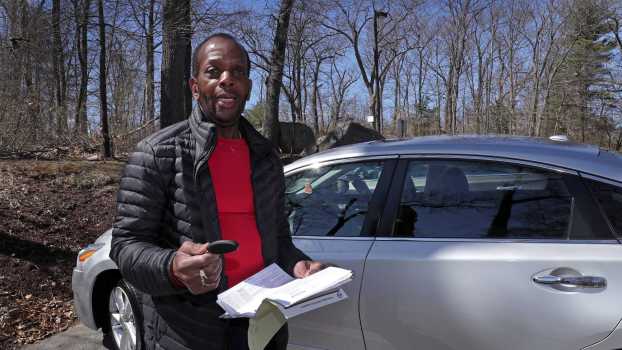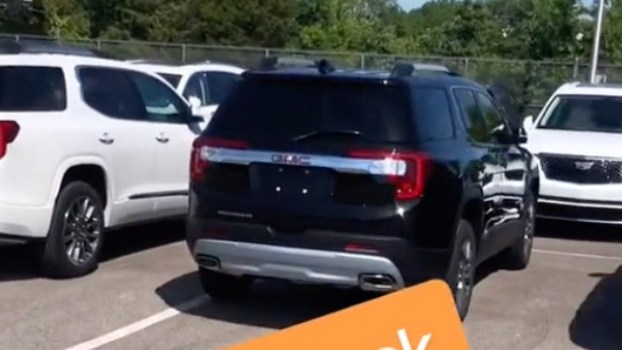
Forgot Where You Parked?: Try This Weird Trick To Find Your Car
Finding a good parking spot can be challenging — with many cars on the road and a limited number of spaces. Parking is especially difficult in large parking lots and multi-story complexes. Once you secure a good spot, it’s satisfying — but the problem is that it’s easy to forget where you parked. However, there’s a unique remedy to this problem. Try this weird trick to find your car.
Press the car key fob to your head to find where your vehicle is parked

You might have done a double-take after reading the subheading. But as bizarre as this technique sounds, it works. Take your car key fob and press it to your head to help you find where your car is parked. You can also press it on your chin and achieve the same results.
In an earlier article, we covered how pressing a car key fob to your head or chin makes it work from farther away. This method acts as a range extender for the car key fob. Also, the same principle applies when trying to find your parked car after you forget its location.
Science behind extending the range of a key fob
While this car key fob method is quite weird, there’s a scientific explanation behind it. When a driver presses the car key fob against their head or chin, the waves enter the body and increase in amplitude. By doing this, you turn your head into an antenna.
The human body is composed of up to 60% water — and the water more than doubles the height of the waves. This is why sound travels farther in water — and part of the reason why whales and dolphins rely on echolocation for navigation and communication.
So, the waves from the car key fob bounce around inside your body, get stronger, and travel farther — all the way to your parked car. The signal reaches your vehicle, which beeps in response. Then, you follow the beeping sound to your car’s location.
In an interview with Mirror, the automotive team at Dick Lovett, a used car dealership, said: “If you’re having trouble finding your car in a busy car park, or are unsure where you parked it, you can place the car key fob on your chin in order to increase the range of the car-retrieval signal. Effectively, your head turns into an antenna. As the head contains fluid, it means it’s actually a great conductor and will increase the range of the remote’s signal.”
Other tips to help you find a parked car

In addition to the weird car key fob trick, there are some other ways that you can find your parked car if you forget its location. With advances in technology, doing so is easier than ever. As detailed by AARP, here are some alternative tips:
- Pin your car’s location on Google Maps or other map software and then view the location of your vehicle on your smartphone. Additionally, there are many free or inexpensive parking apps.
- Install a tracking device on your car. Also, some vehicles already have a GPS tracker in the navigation system.
- Make your car more distinctive so that it’s easier to spot in a sea of other vehicles. Similar to how one ties a ribbon to their suitcase so that it’s easier to find in an airport luggage carousel, you can do the same to your car — with tying a ribbon on the antenna or roof rack.
- Park your car close to an identifying landmark, such as a sign or building. Also, some lots and facilities have numbers or letters on signs, posts, or walls, such as “Lot B” or “Row 3.”
- Take a photo or video of your car and its parking location.
- Park your vehicle far away from other cars. As an added benefit, there’s a lower chance of someone else denting or scratching your vehicle. Plus, you’ll get some exercise with some extra steps.
In case you were wondering, placing the car key fob on your head or chin is safe to do. Despite its strangeness, people have been doing this technique for years — with no reported adverse effects.





